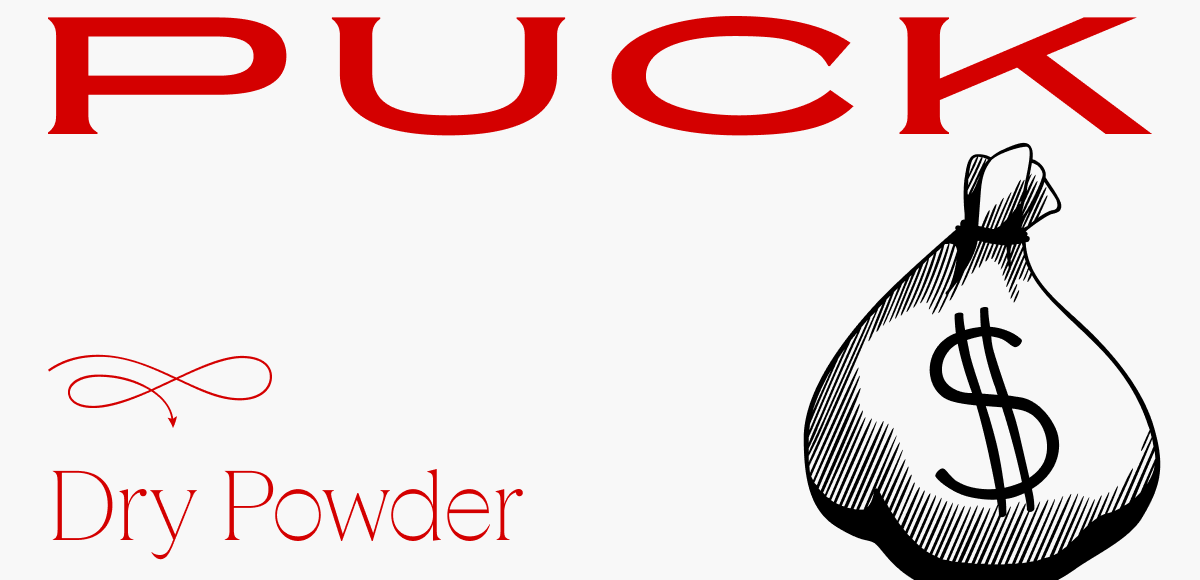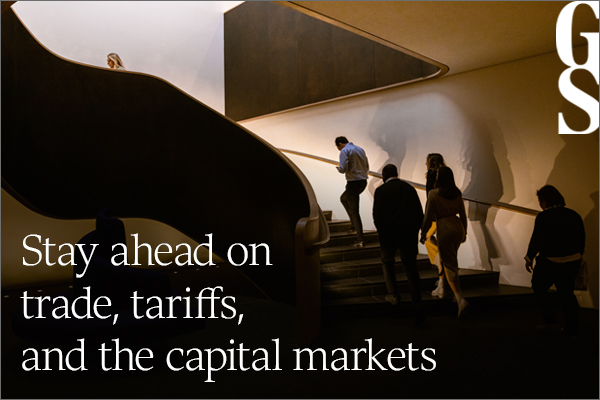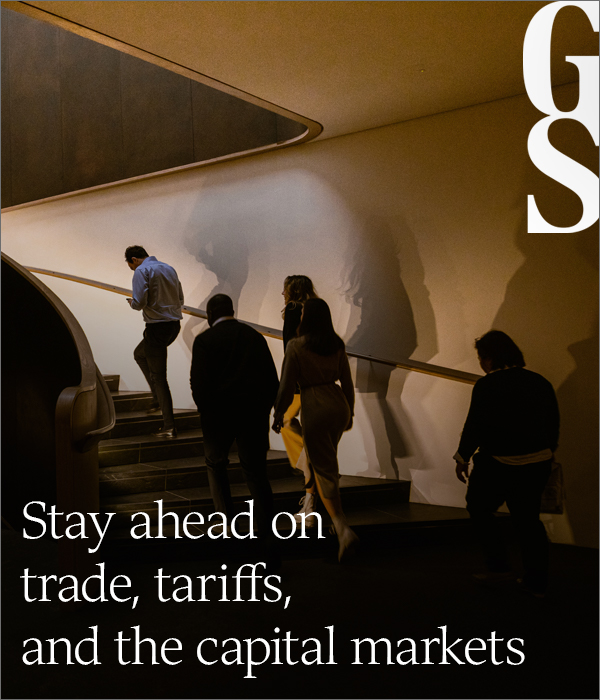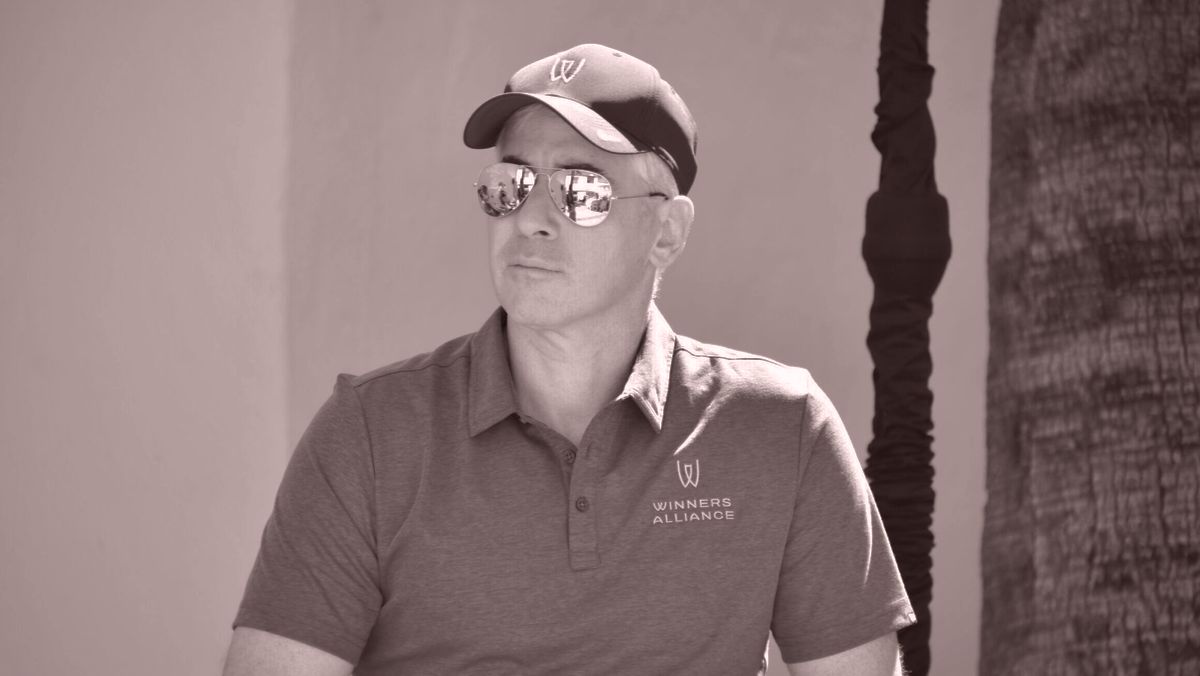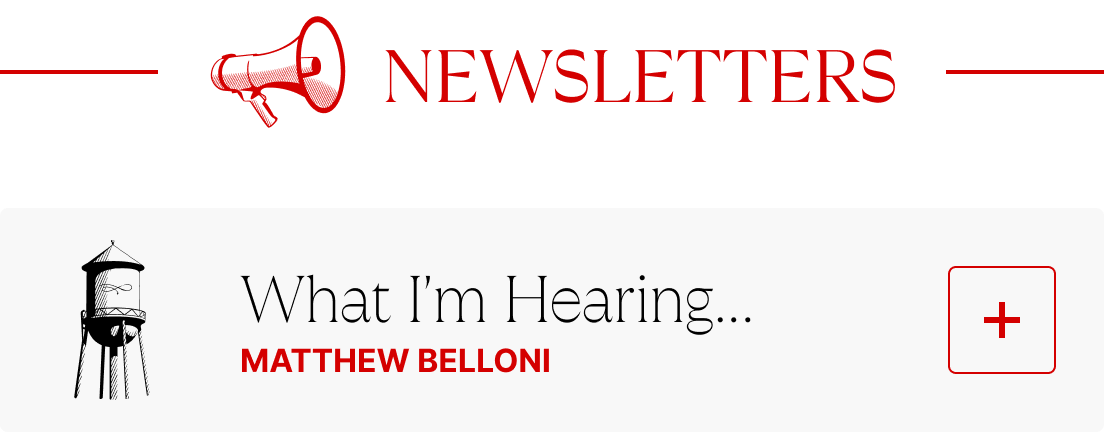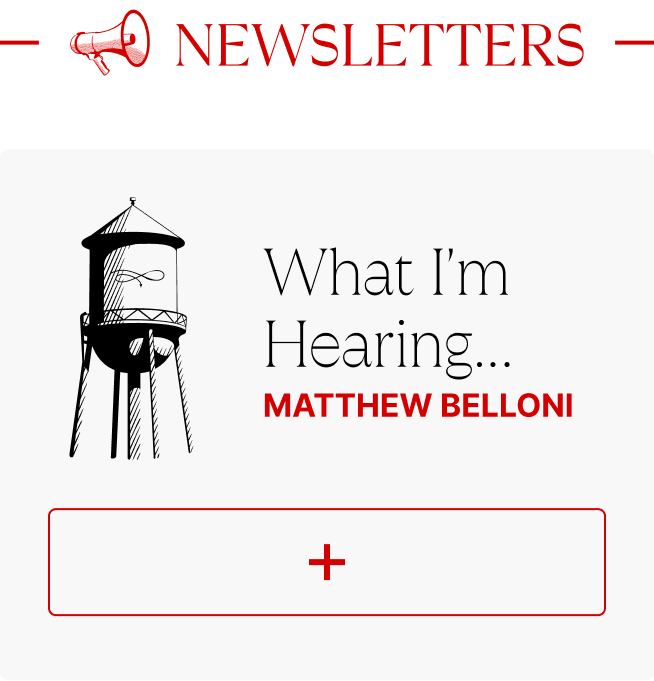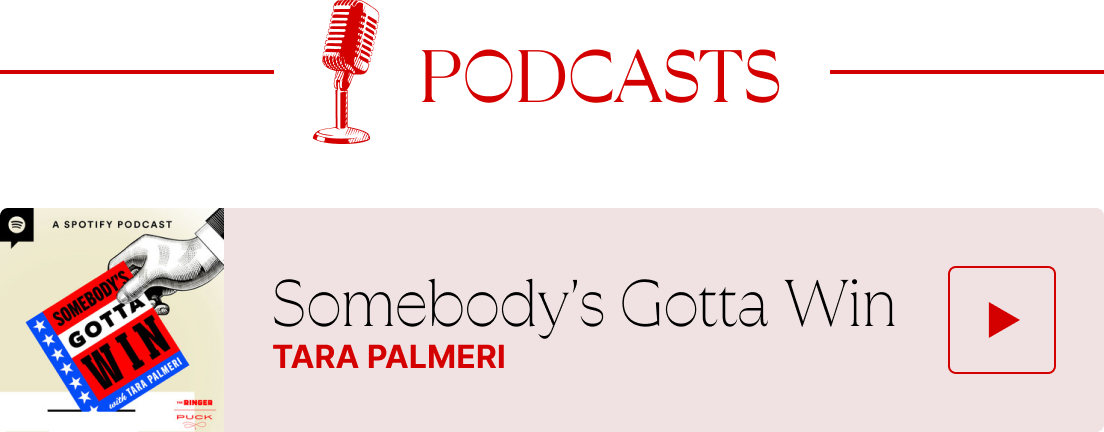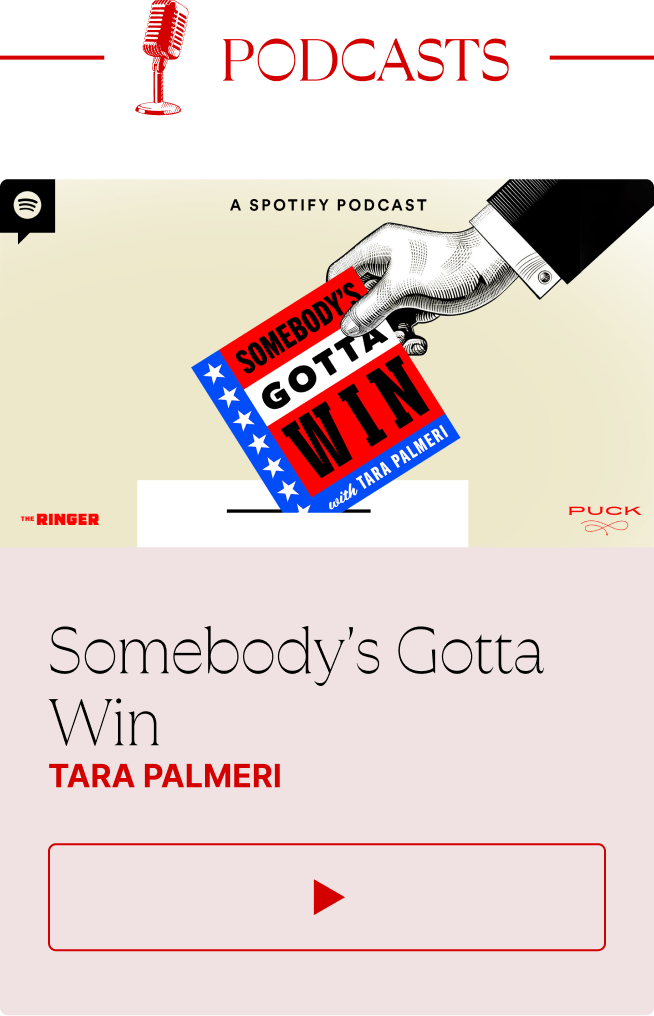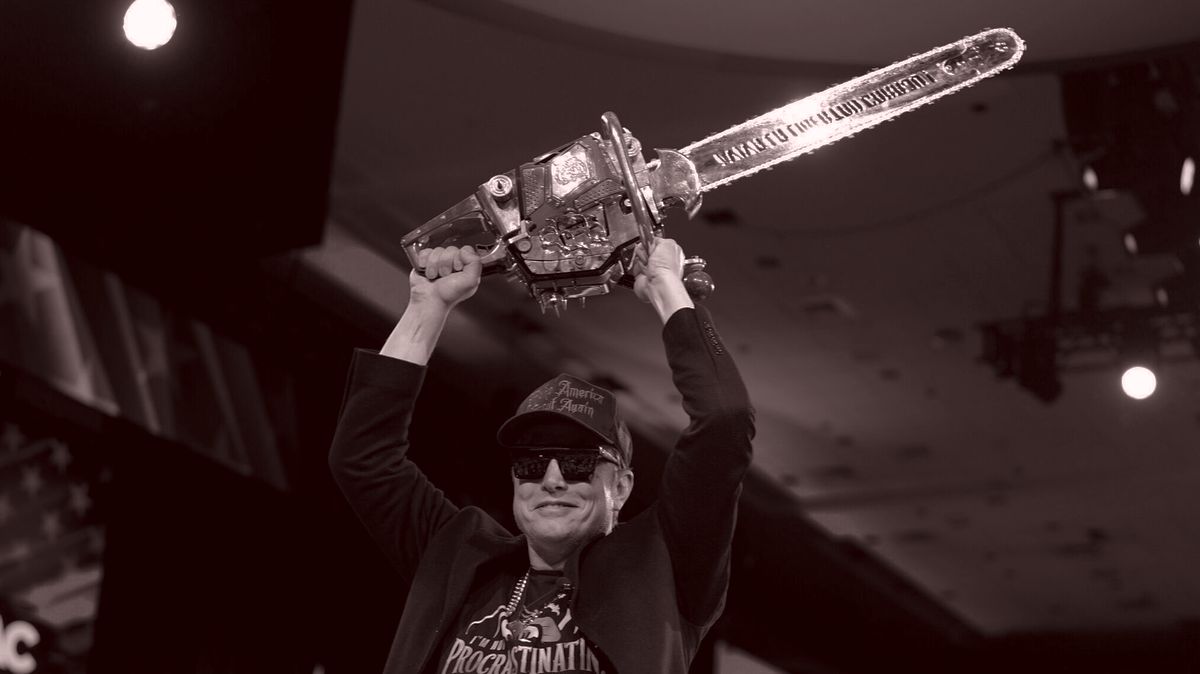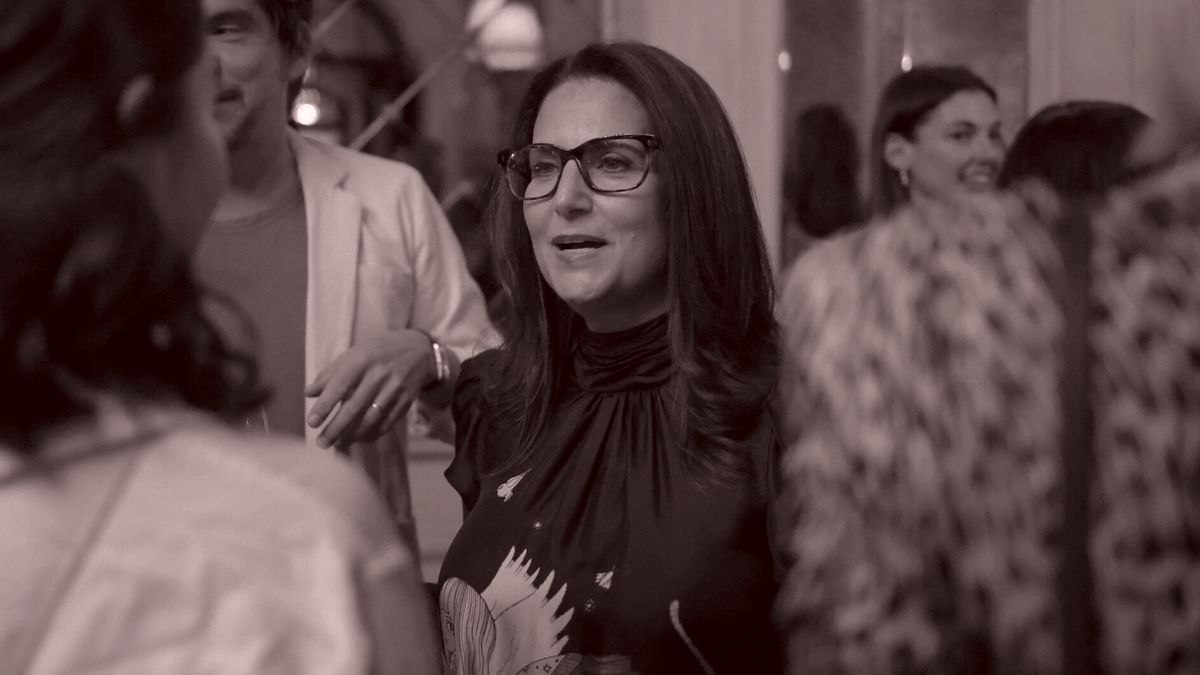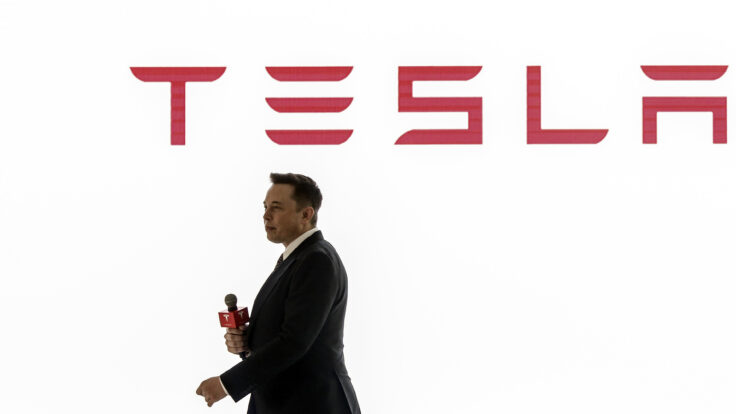Welcome back to Dry Powder. I’m Bill Cohan.
Say what you will about Bill Ackman, the billionaire hedge fund manager and veritable slayer of Ivy League presidents, but he’s undeniably a man of action—and great ambition. A few months ago, I chronicled his quixotic mission to transform the Howard Hughes Corporation into his own
version of Warren Buffett’s Berkshire Hathaway. Alas, shareholders and the board more or less rebuffed his initial proposal, but Ackman has returned, and is offering to buy another $900 million of Howard Hughes stock at $90 per share, raising his stake to 48 percent. Is he on the cusp of realizing his fantasy of “permanent capital”? More on that in today’s issue.
|
|
|
A MESSAGE FROM GOLDMAN SACHS
|
What’s driving market moves around the world — and where will they be going next?
Find a competitive edge with sector, market, and geographic insights and analysis from Goldman Sachs’ top economists and strategists.
Explore our market intelligence.
|
|
|
- S.B.F.’s Sullivan & Cromwell problem: After a two-year hiatus, Sam Bankman-Fried made an unexpected return to X, f.k.a. Twitter, on Monday night, via a series of tweets from inside the Metropolitan Detention Center in Brooklyn, where his new neighbors include Diddy and Luigi Mangione. S.B.F.’s tweetstorm was presumably sparked by Elon Musk’s ridiculous email asking all federal employees to list the five things
they did “last week” or risk being fired.
Sam was compelled to share his own management experience. “Firing people,” he explained, “is one of the hardest things to do in the world. It sucks for everyone involved. More often, the problem is that the company just doesn’t have the right job for them. I’d tell this to everyone we let go: that it was as much our fault for not having the right role for them, or the right person to manage them, or the right work environment for them.” Thanks,
Sam!
I don’t know if Sam is trying to position himself as the humane alternative to Musk’s bloodless grim reaper—Sam doesn’t respond to my email requests these days, despite, or maybe because of, the jailhouse interview I conducted with him last May. He’s been appealing last September’s jury verdict, which handed him a 25-year sentence for ripping off FTX’s customers and lying
to his investors, among other things, and it’s possible that Trump’s election has Sam feeling optimistic about a pardon—particularly since the president has taken a shine to the crypto world and is handing out pardons like Big Macs.
Alas, S.B.F.’s appeal largely rests on his argument that Sullivan & Cromwell, the tony Wall Street law firm, is to blame for his downfall. It so happens that Jay Clayton, the new U.S. Attorney for the Southern District of New
York, was a longtime S&C partner. And, wouldn’t ya know, the law firm representing Trump in his appeal of his conviction in the Stormy Daniels case is… Sullivan & Cromwell. Furthermore, Trump likely remembers that S.B.F. offered him $5 billion to not run for president in 2020. In any case, I’m glad Sam is back and sharing his thoughts with us. Last night, out of the blue, he followed me on Twitter.
|
|
|
The flamboyant hedge fund billionaire, Ivy president basher, and
prolific X poster is back with a revised bid to attempt to turn a middling real estate company into a Berkshire-style cash machine, and give himself the inside track to becoming his generation’s Warren Buffett.
|
|
|
Last week, Bill Ackman, the audacious hedge
fund billionaire and scourge of Ivy League presidents everywhere, jumped on X Spaces to share his revised plan to further his ambition of becoming Gen X’s own Warren Buffett. As I reported last month, Bill’s immediate goal is to turn the Howard Hughes Corporation—a modest real estate company, of which Bill and his Pershing Square affiliates own 37.6 percent—into
his own financial growth vehicle, just as Buffett turned Berkshire Hathaway, once a downtrodden textile company, into his own investment holding company more than 50 years ago. Of course, the 58-year-old Ackman, who’s worth around $8 billion these days, has a ways to go to catch his idol, who is 94 years old and worth around $150 billion.
Last month, Bill proposed increasing his stake in
Howard Hughes to at least 61 percent, but not more than 69.2 percent, through a combination of a $1 billion investment and $500 million corporate share repurchase plan. That proposal would have kept Howard Hughes a publicly traded company and allow it to do what Berkshire Hathaway does—acquire other companies, public and private; buy stakes in other companies, public and private; issue new debt and equity securities as needed to bolster access to capital (though Buffett does not issue new
equity)—and harvest what Bill hopes will be the output of Howard Hughes’ cash-generating machine.
At the time, he offered to increase his stake at $85 per share, which he claimed was a 38 percent premium to the “unaffected” share price of Howard Hughes. Shareholders could either take their pro rata share in cash, or hold on to their stock and join the Bill Ackman sleighride. For an annual fee, Bill
and his crew would have directed the new acquisition program while leaving the existing Howard Hughes management in place to continue to do its real estate thing.
In any event, Bill scrapped that idea last week after hearing from some shareholders that $85 per share wasn’t going to cut it, and after the special committee of the Howard Hughes board of directors, who had hired Morgan Stanley to evaluate Bill’s proposal, urged
him to revise it. So revise it he has.
|
|
|
A MESSAGE FROM GOLDMAN SACHS
|
Trade, tariffs, monetary and fiscal policy: dive deep into the forces driving the global economy
today.
What to expect: Market-by-market, region-by-region, sector-by-sector analysis from our specialists on the trading floor to our independent research desks.
Explore our macro insights.
|
|
|
During his Spaces chat, Bill announced that he and his Pershing
Square affiliates were sweetening the pot, offering to buy $900 million in Howard Hughes stock, directly from the company, at $90 per share—a 46 percent premium to the unaffected share price. (The stock is now trading around $74 per share.) “Normally, you would see premiums like this in change-of-control, going-private transactions,” Bill said. “Here, we are simply buying stock in the company.” The enhanced bid represented a modest ~6 percent increase from the $85 per share they had
previously offered, but it’s a far simpler transaction.
Bill already has the cash ready to go—no outside financing required. If the proposal is accepted by the special committee, Bill and his affiliates would increase their ownership stake in Howard Hughes to 48 percent. Other aspects of the initial proposal stay the same: Bill and his crew would take over the responsibility of using the company’s
cash flow, plus his new $900 million, to try to make all sorts of clever acquisitions, like Buffett, while leaving the company’s existing management in place at the real estate level. (Buffett, of course, has a cash hoard of $334 billion, far more than what Bill would have at his disposal.)
In exchange for his “services,” Bill is asking for a 1.5 percent annual management fee based on the market value of the
company, which is now about $3.7 billion—so an annual fee of about $55 million—which would increase if the market value increases. He’s also committing to hold on to the stock “forever,” as he said on X, and to not squeeze out the other public shareholders. He additionally said the company would not buy back its stock without the approval of the board of directors, a pledge of sorts that Bill & Co. won’t increase their stake above 50 percent.
|
Bill has always had a thing for Warren Buffett, as my faithful
readers know. In fact, he seems to believe the current deal, if completed, would give him a leg up on his idol. As Bill recently told me, Howard Hughes is “a lot better than a crappy textile company, right? It’s actually a really good business. And it’s going to become a lot more cash-flow positive over the next decade, and we can just redeploy that capital.”
Bill has tried any number of tactics over the years to obtain his version of “permanent capital,” including the largest SPAC ever—which later got completely unwound—and something Bill called a “SPARC,” which is still floating around out there, waiting for a company to buy. His motivation for futzing with Howard Hughes, he explained on the Spaces chat, was the fact that it’s essentially been a dud of an
investment since it was spun off from General Growth Properties, one of Bill’s huge winners back in the day. Bill noted that he’s been on the Howard Hughes board since it was spun off and that, in 2019, the company hired Centerview Partners to do “a full-court press” and sell the company. Alas, there were no takers.
Last summer, he hired Jefferies to take Howard Hughes private. The bank approached
284 investors, 40 of which signed nondisclosure agreements and kicked the tires. Around 20 of the 40 took the next step. But, in the end, there were no “formal” or “informal” expressions of interest in the company. Another goose egg. (Potential investors couldn’t see the “path to liquidity” after taking the company private, Bill said.)
Bill Ackman, man of action, had to do something. On a trip to the beach over Christmas, he realized the answer
was right there in front of him, like a beached whale: Turn Howard Hughes into his Berkshire Hathaway!
|
During his livestream last week, Bill said the special committee of
the Howard Hughes board had only two questions to answer. First: Should Bill and Pershing be allowed to increase their stake to 48 percent? He thinks this should be an easy one, since the transaction wouldn’t result in a change of control. “At 37.6 percent, we’re already obviously a very influential shareholder in the company,” he said. “I don’t think our influence meaningfully changes” when Pershing increases that stake to 48 percent. The second question is more complicated: Does Howard Hughes,
itself, want to become the next Berkshire Hathaway? If so, should Pershing Square be paid for its help in transforming the company, and what form should that compensation take?
Bill tried to answer these questions with a long-winded stem-winder about Pershing Square’s stellar track record—a few clunkers aside, such as Valeant Pharmaceuticals, Herbalife, and JCPenney—and how much value he and his team
can bring to the table on behalf of Howard Hughes’ shareholders. “What is happening here is a new management team that’s coming on board to run the holding company, and we’re adding an extra $810 million to our investment in a company—a personal investment,” Bill said. “This has to be the largest investment probably ever made by a new management team stepping in to run a public company.” He told listeners that his personal investment in the company would increase to $764 million; the only other
personal investment he has of that magnitude is what he has in Pershing Square Holdings, his publicly traded investment company based in Amsterdam.
As for the fees he’s charging, Bill argued that Howard Hughes would be getting a bargain. “We’re getting paid one and a half percent in this transaction of the equity market cap of Howard Hughes going forward, paid on a quarterly basis,” he said.
“No promotes, no performance allocation, no performance-based fees, no equity, no options, no restricted stock.” He said he normally charges fees of 1.5 percent of assets under management plus a “performance” fee of between 16 percent and 20 percent based on realized and unrealized gains. So, you know, a bargain for Howard Hughes.
On the Spaces call, Bill also took questions from some of the 2,000
or so people listening in. I asked Bill how his revised offer to invest $900 million in Howard Hughes advanced his goal of being his generation’s Buffett. (I couldn’t resist.) You’ll be stunned to hear that he wasn’t modest: “Buffett was an inspiration to me when I was in my early 20s, … and he’s been an inspiration ever since,” Bill said, adding that when he raised his first hedge fund, at age 26, he resolved to have a “better record” than Warren. “It’s good to set a high
bar.”
What makes Buffett unique, of course, is that he truly has permanent capital—investors can’t take their money away from him if they get nervous for whatever reason. They could always sell their Berkshire Hathaway stock, but that doesn’t remove money from Warren’s cash hoard, as would happen if, say, a limited partner wanted their money back from Bill’s hedge fund. “It’s much harder to
manage capital when your money can disappear overnight,” Bill said on the call. Bill does have a permanent capital vehicle of sorts in Pershing Square Holdings, which buys minority stakes in public companies. But he wants more flexibility. “The big advantage Buffett has beyond permanent capital is he owns businesses that generate cash and generate excess cash that he can redeploy into buying new businesses,” Bill said in answer to my question. “The holy grail is to have a public entity—permanent
capital—that owns operating businesses that generate more cash than they can use in their own business, that you can redeploy in buying new companies.”
Bill went on to reiterate that his revised proposal puts $900 million more cash on Howard Hughes’s balance sheet, and that capital, along with the existing $500 million, gives the company $1.4 billion of firepower for acquiring companies. Over
time, he said, the deal will provide him and Howard Hughes shareholders a nice return. “And that’s why it works,” he concluded.
Well, maybe. It’s still a modest amount of firepower for someone with Buffett-like ambitions. And since Bill announced his $900 million purchase offer last week, Howard Hughes stock has been a nothingburger, down about 9 percent. Bill has the ability to make everything he does seem like a profound bit of alchemy, but it doesn’t always
work out that way. Which reminds me of something Bill told me that Warren once told him: “‘The only person who could cause you more harm than a thief with a dagger is a journalist with a pen.’” Bill paused for a moment while conjuring the memory. “Those were very powerful words.”
|
|
|
An insider-friendly tip sheet from Matthew Belloni, who spent 14 years in the trenches at The Hollywood Reporter
and five before that as an entertainment lawyer. Subscribers also receive What I’m Hearing+, a companion email focused on entertainment law, the streaming industry, and more.
|
|
|
Puck senior political correspondent Tara Palmeri is here to help you get through what may be the most chaotic and
consequential presidential election cycle of our lifetime. With 15 years covering politics, Tara speaks with the smartest political brains to discuss what is happening behind the scenes in Washington D.C., and on the campaign trail.
|
|
|
Need help? Review our FAQ page or contact us for assistance. For brand partnerships, email ads@puck.news.
You received this email because you signed up to receive emails from Puck, or as part of your Puck account associated with . To stop receiving this newsletter and/or manage all your email preferences, click
here.
|
Puck is published by Heat Media LLC. 107 Greenwich St, New York, NY
10006
|
|
|
|
